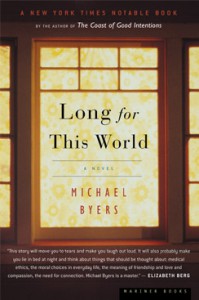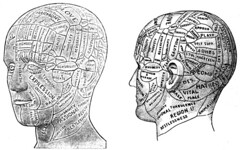As someone who primarily enjoys stories where lots of stuff blows up and people swing, shoot, or chuck things at each other, I am fascinated by those writers I admire whose work does exactly none of that, and whose narratives wouldn’t be caught dead with a gun, a knife, or a lit stick of dynamite. Michael Byers is such a writer. In his 1999 short story collection, The Coast of Good Intentions, and his two novels, 2003’s Long for This World and the recently released Percival’s Planet, Byers eschews literal detonations for the precise and studied understanding of the ways the human interior contorts, twists, and ignites upon its own contradictions. Reminiscent of such lightweights as James and Welty, Byers’ work shines with studied and infuried illuminations of the imperfect spirit; he can map out this process of inner grappling with a lovely, intense, and disciplined artistry.
Percival’s Planet, which Holt published this past August to critical acclaim, tells the story of the people involved – in ways direct and indirect, but never tangential – in the 1930 discovery of Pluto. He gives us the powder keg frustration of aging WASPS, the desire and turmoil of the frustrated scientist, and the slow burn of a woman slouching towards darkness, as they collect in the arid beauty of the Arizona desert, looking to that celestial body, way out there at the edge of the solar system, that acts as a through line to bring them all into collision.
Interview:
Michael Shilling: Percival’s Planet seems to be primarily about the search for that which is just out of reach. Each character – from Felix DuPrie trying to salvage his sense of worth to Mary Hempstead trying to get a foothold on reality to Clyde Tombaugh hoping to discover Planet X – is going for an idea/state of being that may be false/against their gut feeling. When you were writing the book, how deliberately did this common thematic thread evolve?
 Michael Byers: It’s a nice observation. Like any set of thematic concerns that show up in a finished novel, some were obvious to me from the start and others only slowly made themselves known. It’s hard, and I think probably against a writer’s best interests, to know exactly how all the pieces go together too soon. I suppose I can say that you begin to get a sense of a gathering coherence to certain storylines, and a sense that one part of the book is usefully amplifying or undercutting another part. When I’m down in the guts of a book I work sentence-to-sentence, paragraph-to-paragraph, scene-to-scene, and I worry about pacing, timing, narrative interest, that sort of thing, and then suddenly there’ll be a chiming sound from some unfamiliar area of my brain that will suggest that A is going to fit neatly, or interestingly, into slot B. Which I then take note of, I think, and go on doing what I was doing. If you can understand the book you’re writing as you’re writing it, I think, it’s not big or interesting enough.
Michael Byers: It’s a nice observation. Like any set of thematic concerns that show up in a finished novel, some were obvious to me from the start and others only slowly made themselves known. It’s hard, and I think probably against a writer’s best interests, to know exactly how all the pieces go together too soon. I suppose I can say that you begin to get a sense of a gathering coherence to certain storylines, and a sense that one part of the book is usefully amplifying or undercutting another part. When I’m down in the guts of a book I work sentence-to-sentence, paragraph-to-paragraph, scene-to-scene, and I worry about pacing, timing, narrative interest, that sort of thing, and then suddenly there’ll be a chiming sound from some unfamiliar area of my brain that will suggest that A is going to fit neatly, or interestingly, into slot B. Which I then take note of, I think, and go on doing what I was doing. If you can understand the book you’re writing as you’re writing it, I think, it’s not big or interesting enough.
On that last point, when you say, “not big or interesting enough,” do you mean that comprehension of what one is doing while drafting makes for a predestined, i.e. non-organic story with a pre-conceived outcome? Have you had times where you were writing a story and really wanted to make some political/social statement or convey some moral, and found that the characters were getting in the way of doing that? Seems that is when the best stories happen. I guess what I’m asking is, for Percival, at what point did the world you were creating just take over?

Clyde Tombaugh, Lowell Obsrv.
I think too much knowledge beforehand can make for fairly flat storytelling. I think that’s pretty well agreed. I’ve written both ways, both to a strict plan and without a plan at all, and I think it’s true that no matter how much you plot and plan you end up with surprises along the way, and that those surprises are often generative. I guess I mean, that if you know everything about the book you’re writing at the moment, you’re not writing the most interesting book possible — because your conscious mind isn’t the only author of the book. While writing Percival’s Planet the most difficult part wasn’t scene-setting or character-building but giving characters as much freedom as possible within what was, after all, a predestined story.
Which of the characters changed the most on you as you wrote the book? Did you resent that character for ruining the careful/painstakingly perfect plan for had for them?
Characters do change on me, although in this book the changes ended up being dictated by the storylines they had become involved in. I had a number of different endings for Hollis Hempstead, for example, all of which were dramatically exaggerated and spectacular, but none of which made sense given the other stories Hollis found himself among. So I had to scale his conclusion back considerably. Also, since part of the process of writing this book was excising a very great deal of middle, which is where characters tend to get hazy and uncertain on me, I was able to fasten on their more certain ends more definitely.
What do you mean by “a very great deal of middle”? Were there story lines in the book that you wanted to pursue, but couldn’t get a proper handle on?
I think I had a handle on most of it by the end, but including the middles made for a story that was broad without being particularly deep or affecting, I think. And too long. There’s another version of this book that exists mostly in my head, and which is about twice the length of this book. I think it’s probably just as good, maybe better, but I’d still be working on it now, and I got to a point where I felt done enough with this book to let it go as it is.
What are your thoughts on writing about insanity? How did you approach creating Mary Hempstead’s character?
I think, as with writing about anything else you haven’t experienced directly, it’s important to experiment a little, to feel around in the dark until you find some voice or set of images that strikes you as fitting. I actually don’t think writing about insanity is that much different, or even that much more difficult, than imagining your way into the life of a person of a different age or disposition. An honest, imaginative inhabitation is still the best means to find your way into a mind, even one whose rules are radically different from your own. We imagine our way into differently ordered minds all the time. There can be a kind of harried, associative logic in the hallucinatory state, and if you find a suitable grammar for that state, for that logic, it’s possible to follow it to some unlikely ends. Mary’s character, including her elaborate hallucinations, came to me piece by piece, and a great deal of what I wrote didn’t land in the final book — including a good deal of material concerning her time in the asylums in which she finds herself. I wanted her to be variously assaulted — by the workings of her own mind, first, but also by a world in which she’s an object of desire. The slightly tricky parts involved knitting the outer world, as it attached to her character and the plot, to her inner world as she experienced it — so, for example, it seemed useful to have her be especially sensitive to being stared at: she felt she looked a certain way, and she feared that everybody was seeing her true, deformed nature.
Who do you think writes well about mental illness?
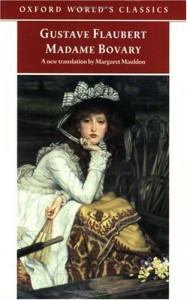 Most writers have written about mental illness up in some fashion, as it turns out, although of course only recently has the subject been recognized as such. I mean, Emma Bovary is pretty diagnosable, if you wanted to do that for some reason, but it’s interesting to note how intimate and how unjudgmental Flaubert’s inhabitation of Emma is. Jane Smiley (at least, and maybe she among others) calls Madame Bovary the “first case study,” minute and faithful in its description of how a human being works, certainly, but becoming great literature largely to the extent that Flaubert resists proposing a reason for Emma’s behavior. I suppose the potential pitfall in writing about a character losing her mind is a temptation to be less than perfectly particular, or less than fully human even as a character’s mind convinces her that her reality is the one true one. If your character can’t imagine that she’s mad, then she’s close to lost as a character, I suppose — which is why, once Mary goes off the deep end late in my novel, I don’t have any further chapters from her point of view.
Most writers have written about mental illness up in some fashion, as it turns out, although of course only recently has the subject been recognized as such. I mean, Emma Bovary is pretty diagnosable, if you wanted to do that for some reason, but it’s interesting to note how intimate and how unjudgmental Flaubert’s inhabitation of Emma is. Jane Smiley (at least, and maybe she among others) calls Madame Bovary the “first case study,” minute and faithful in its description of how a human being works, certainly, but becoming great literature largely to the extent that Flaubert resists proposing a reason for Emma’s behavior. I suppose the potential pitfall in writing about a character losing her mind is a temptation to be less than perfectly particular, or less than fully human even as a character’s mind convinces her that her reality is the one true one. If your character can’t imagine that she’s mad, then she’s close to lost as a character, I suppose — which is why, once Mary goes off the deep end late in my novel, I don’t have any further chapters from her point of view.
But what about writers, such as Joyce Carol Oates in Zombie, Charlotte Perkins Gilman in “The Yellow Wallpaper,” and about half of Poe’s oeuvre, who construct an interior logic to their characters who are totally nuts? I feel like that’s an often useful way to approach the character who is “a long time gone,” bridging the gap between the world of the character and the reader. Under what contexts do you think that can work? And please do not use this as an occasion to hate on Poe, because you will break my Tell Tale Heart.
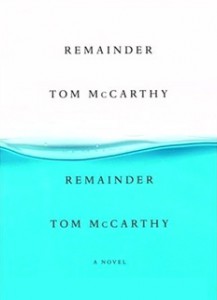 Right, and we might also include a book like Tom McCarthy’s Remainder, which sweetly deceives the reader into experiencing a false world as though it is a real one – because, of course, for the narrator of that peculiarly moving novel, the false world is the only world to be had. Maybe the difference can be described in this way, that when a broken or spectacularly unreliable narrator has dominion over an entire work, a certain self-reinforcing logic begins to accumulate – each misangled thought making a secure landing spot for the misangled thought to follow – whereas in a work with several points of view, you could argue that they all live beneath the imaginary or at least inscrutable dominion of the Narrator, Writ Large, who exerts a kind of regulating influence on all the voices under Its Oversight. On the other hand, maybe it is more a musical statement: that one weirdly dissonant voice among others who are more traditionally melodic would make for a strange symphony.
Right, and we might also include a book like Tom McCarthy’s Remainder, which sweetly deceives the reader into experiencing a false world as though it is a real one – because, of course, for the narrator of that peculiarly moving novel, the false world is the only world to be had. Maybe the difference can be described in this way, that when a broken or spectacularly unreliable narrator has dominion over an entire work, a certain self-reinforcing logic begins to accumulate – each misangled thought making a secure landing spot for the misangled thought to follow – whereas in a work with several points of view, you could argue that they all live beneath the imaginary or at least inscrutable dominion of the Narrator, Writ Large, who exerts a kind of regulating influence on all the voices under Its Oversight. On the other hand, maybe it is more a musical statement: that one weirdly dissonant voice among others who are more traditionally melodic would make for a strange symphony.
Who else have you read that combines historical events with storytelling in a compelling way?
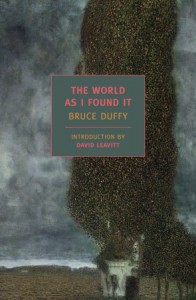 Hm, I have a few favorites. There’s an argument to be made that every novel is a historical novel (even novels set in the future). A nice example that doesn’t get a ton of attention is The World as I Found It, a 1987 novel by Bruce Duffy. He’s not a name you hear much. It’s a long novel, taking place over about thirty-five years, describing the lives of Ludwig Wittgenstein, George Moore, and Bertrand Russell. It does what I want a historical novel to do: fearlessly take over the lives of real men and women, give at least a sense of the times, and move convincingly between the intimate and the epic. I experience it differently now than I did twenty years ago: I still admire its characterizations and carefully produced set pieces, which are often quite masterly. But these days I more admire Duffy’s bravado – the nutty glory of sitting down to write such an outsizedly ambitious thing. He pulls it off, mostly, and where he doesn’t I love the fact that he tried. The perfectly made object, of course, is usually a less than interesting one. As V.S. Pritchett says, “the modern novel has reached such a pitch of competence and shapeliness that we are shocked at the disorderliness of the masterpieces….the carelessness, the lethargy, the enormous bad taste of genius, its liability to accident, its slovenly and majestic conceit that anything will do.” Trying to reconcile this sort of beautiful disregard with the writer’s usual anxious urges to polish and perfect is a lifelong project for most of us, I imagine.
Hm, I have a few favorites. There’s an argument to be made that every novel is a historical novel (even novels set in the future). A nice example that doesn’t get a ton of attention is The World as I Found It, a 1987 novel by Bruce Duffy. He’s not a name you hear much. It’s a long novel, taking place over about thirty-five years, describing the lives of Ludwig Wittgenstein, George Moore, and Bertrand Russell. It does what I want a historical novel to do: fearlessly take over the lives of real men and women, give at least a sense of the times, and move convincingly between the intimate and the epic. I experience it differently now than I did twenty years ago: I still admire its characterizations and carefully produced set pieces, which are often quite masterly. But these days I more admire Duffy’s bravado – the nutty glory of sitting down to write such an outsizedly ambitious thing. He pulls it off, mostly, and where he doesn’t I love the fact that he tried. The perfectly made object, of course, is usually a less than interesting one. As V.S. Pritchett says, “the modern novel has reached such a pitch of competence and shapeliness that we are shocked at the disorderliness of the masterpieces….the carelessness, the lethargy, the enormous bad taste of genius, its liability to accident, its slovenly and majestic conceit that anything will do.” Trying to reconcile this sort of beautiful disregard with the writer’s usual anxious urges to polish and perfect is a lifelong project for most of us, I imagine.
If there was one element of the book you could have expanded more, which would it have been, and why?
More than anything else I’ve written and published, I have a pretty substantial body of finished but unincluded material – chapters that didn’t make it into the final version of Percival’s Planet. The material is fairly broadly distributed over the cast of characters. Because I worked on this book for so long, there are substantial ghosts hovering over it – the ghosts of previous versions, deep histories, family backgrounds, and so on. I’ve published a couple of these alternate chapters, and I’ve put some of this material on the book’s website. I suppose if I had to choose one thing, I’d have included more of Mary and Edward’s story, which has a long and deep written history (but which is brief in the book itself). I do think having such a cushy pile of unincluded matter allowed me to make decisions about these characters more easily than I might have otherwise – whether that logic is always obvious to the reader is another question.
Which books inspired you while writing Percival, and why? That is, were they formal models from which you took inspiration, or were they tonally what you were going for, etc.
You have the two categories of books-to-read-while-writing down exactly. Some books you read because they do what you want to do and you’re trying to figure out how they do it. And others seem to live in the sort of art-space that you want yours to live in – they inhabit, in whatever fashion, the territory that you find yourself interested in exploring.
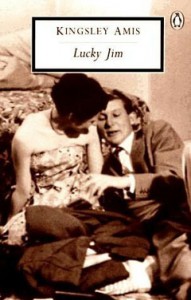 The books that bolstered me most during the usual periods of writerly doldrums weren’t novels about astronomy, or historical-novels-told-from-multiple-points-of-view, but books that I loved because they demonstrated why books were necessary — works like William Maxwell’s The Folded Leaf, Alice Munro’s Hateship Friendship Courtship Loveship Marriage, Kingsley Amis’ Lucky Jim, Louis Begley’s About Schmidt, and Richard Yates’ Revolutionary Road (among many others). Although I think I first turned to these books hunting for some echo of prose that would be clarifying or otherwise helpful, they were more useful, I believe, in retrospect, as books that implicitly demonstrated that a book about human beings and their normal daily behavior was not only worth writing but the only thing worth writing.
The books that bolstered me most during the usual periods of writerly doldrums weren’t novels about astronomy, or historical-novels-told-from-multiple-points-of-view, but books that I loved because they demonstrated why books were necessary — works like William Maxwell’s The Folded Leaf, Alice Munro’s Hateship Friendship Courtship Loveship Marriage, Kingsley Amis’ Lucky Jim, Louis Begley’s About Schmidt, and Richard Yates’ Revolutionary Road (among many others). Although I think I first turned to these books hunting for some echo of prose that would be clarifying or otherwise helpful, they were more useful, I believe, in retrospect, as books that implicitly demonstrated that a book about human beings and their normal daily behavior was not only worth writing but the only thing worth writing.
Although I imagine it doesn’t seem like it, I’m always struggling to write less plot. I am anxious to keep the reader pinned in some way, fearing for the weakness of my powers, and my first instinct is to go for the dramatic stroke. But it’s not, frankly, my strength, and when I get plotty I can get sort of stupid and pat – at least that’s how it often seems to me. I experiment, obsessively, with what might happen, turning over card after card until I find something of interest. Eventually I remember that plot most usefully arises out of character. That’s what really hooks us, in the end – why people do what they do – and the books that last the longest and that I go back to are those that present us with a mind actively considering the way that mind encounters the world. So: Munro, Maxwell, Yates, and so on.
When writing fiction, of which sense (of the five senses) are you most acutely aware? Does it change depending on the project? How about with Percival?
Maybe sound – as in, the sound of dialog, of course, but also the sound of a person’s interior voice as they’re telling their story, narrating the shape of their mind. Sound will tell me how long a sentence should be, what turns a paragraph needs to take (or can reasonably take, given its speed), how self-excoriating or self-pitying a character might be at a certain point. This isn’t a sensory experience of the imagined world but a sensory experience at the desk.
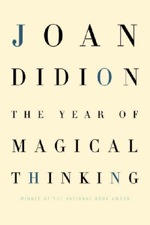 Do you often take to work in which the tone of the writing mirrors the personalities of the characters? Or do you enjoy an artful disjoint between tone and character? For example, one problem I have always had with crime fiction is the manner in which love scenes get stifled by the hard meter of the form, or in The Year of Magical Thinking; people I know who didn’t like it complained that Didion was too cold in her tone, and made her seem not the least bit mournful or engaged with her emotions (I totally disagree).
Do you often take to work in which the tone of the writing mirrors the personalities of the characters? Or do you enjoy an artful disjoint between tone and character? For example, one problem I have always had with crime fiction is the manner in which love scenes get stifled by the hard meter of the form, or in The Year of Magical Thinking; people I know who didn’t like it complained that Didion was too cold in her tone, and made her seem not the least bit mournful or engaged with her emotions (I totally disagree).
It’s an interesting question — I think what bores me, or fails to interest me, I guess, about certain work is when it limits a character’s access to his or her own interior for reasons that don’t seem very worthwhile. Since prose fiction is uniquely able to render interior states, I think it’s the easy way out to write characters whose interiors are conveniently blank to them. It’s the sign, often — although not always — of a writer who isn’t really that interested in people, just in writing something sort of slick or weird.
Some reviews of the book have said that you have too many expository sections on scientific concepts. What do you think of that criticism, and the use of factual exposition in fiction? For example, Moby Dick‘s very long sections on whaling; some think this is an integral part of Melville’s genius, while others pass out before they can get to the next chapter.
Please continue to refer to my novel in the context of canonical books of world literature; that would be very pleasing! Well, math, science – too much of it – I have to say those reactions have surprised me. I actually think those are fairly lazy readers who say that. I think the book is really, in fact, a little thin in those fields, especially for a novel whose main characters are almost exclusively involved in some scientific endeavor or other. I suppose a lot of people, and literary types especially, freak out when they get offered scientific material generally, almost as though they’re offended that such material should show up in the middle of a story. (Think of how many people sort of gleefully admit, Oh, I’m terrible at math! as though it were some proof of their human excellence.) In the book I do try to attach all the science to narrative, and I think I succeed, so rather than being asides  they’re a critical part of what people are doing and why. But even Moby Dick‘s scientific excursions aren’t that lengthy (although they do get fatiguing after about chapter 100), and certainly nothing compared to, say, the essays on history and the Great Man Theory, for example, which you find in something like War and Peace.
they’re a critical part of what people are doing and why. But even Moby Dick‘s scientific excursions aren’t that lengthy (although they do get fatiguing after about chapter 100), and certainly nothing compared to, say, the essays on history and the Great Man Theory, for example, which you find in something like War and Peace.
I guess it’s a question of story vs. exposition, and each person has their preferences/limits. I like when I get the sense of exposition shaped to mirror the way a character thinks or is a mirror of the character’s perception. Somehow Moby Dick accomplishes this objective (though it still bores me). But it seems that this is a pre- vs. post-modern battle between the idea of what objectivity is in fiction, that is, DOES objectivity exist in fiction/existence, or is the shaping/presenting of information inherently have a dose of the subjective because a person/subject is relating that information. Like, if you asked all the characters in Percival who are astronomers to give the same information, it would mirror who they were somewhat, and weigh different elements of that information differently. Or not?
This relates to a discussion of “setting,” too, especially to that dumb old line, “The setting acts like another character!” Well, it doesn’t, ever, although somewhere along the line somebody thought that was a clever thing to say, and it ends up being repeated a lot. What people really mean is, “The setting is being experienced by a particular character or narrative voice and so matters and isn’t just scenery.” Information is a kind of setting.
What are you working on now, and how has the experience of writing Percival influenced this new project?
I am, as usual, working on a few things at once. I won’t be teaching again until September, so I have more desk time than I usually do — so I can both crank out pages and explore side avenues that intrigue me. I used to worry I’d run out of things to write about. The more I write, the more I realize that’ll never happen. At the moment I can imagine about a dozen books that should exist somewhere but don’t, for some reason. It’s incredible that any book should still need to be written, after so many centuries of people going about this business! As to writing now, after finishing Percival’s Planet — having completed a long, demanding book is a pleasure, sure. I’m happy it’s over. I’m proud of it, in parts. Naturally it’s the things I’m dissatisfied with about that novel that stick with me: all its inadequacies, clumsinesses, overstatements, underfillings, overelaborations, etc. At the same time, once a book is in print, it largely unfastens from my writerly self. The finished thing becomes very quickly alien to me. Techniques, habits, small technical accomplishments, all can be carried forward into the next project, but very little feeling for the form, content, or purpose of the work itself remains with me. The current work is the only work I really care about, because — since it’s neither finished nor public – it can still, in some imaginary world, be perfected.
Further links and resources:
